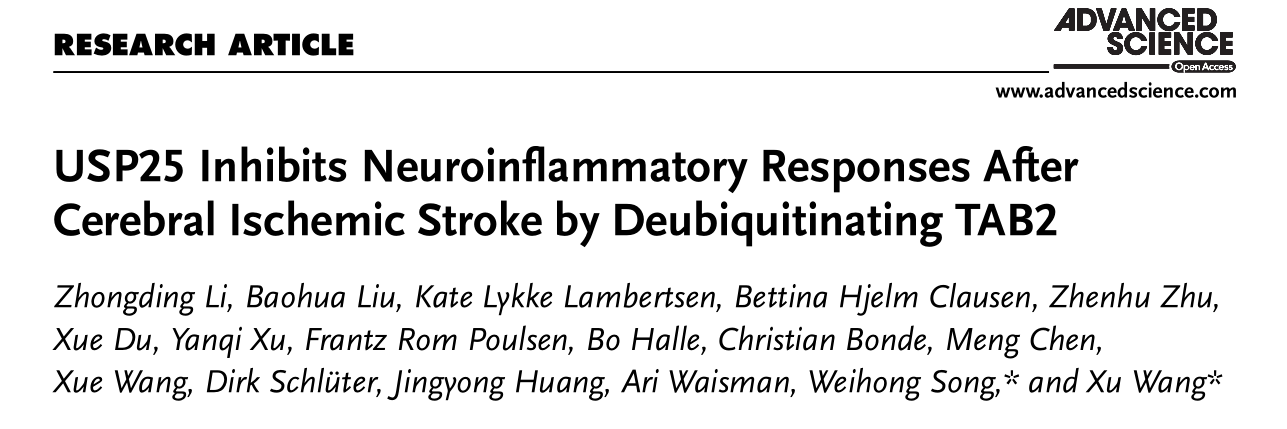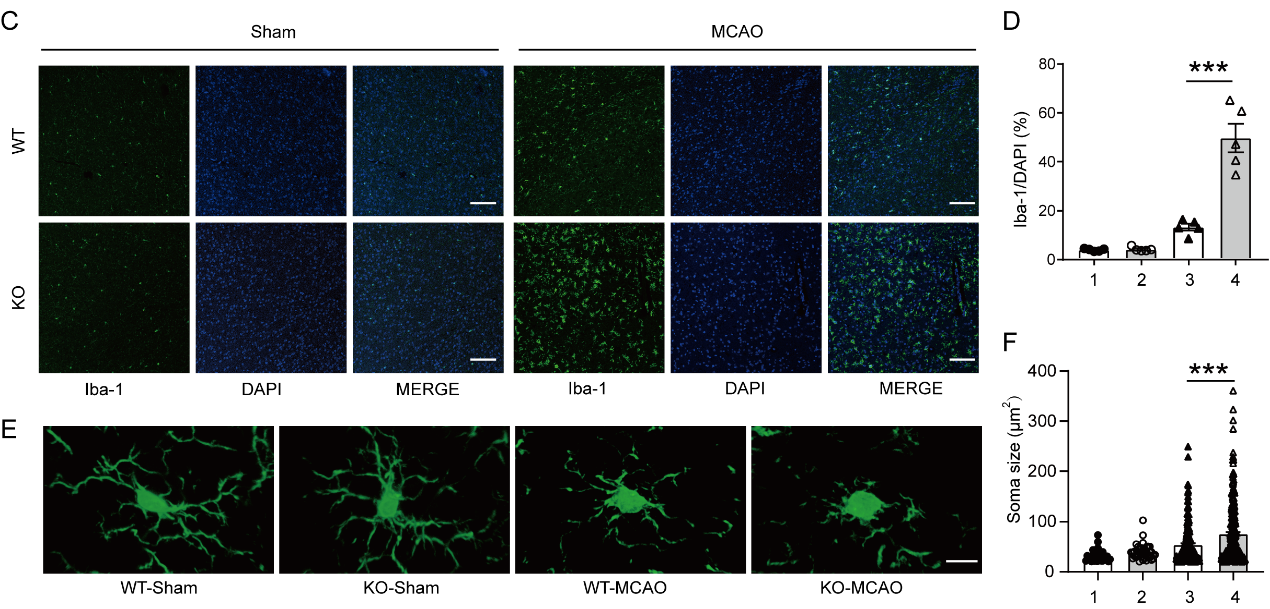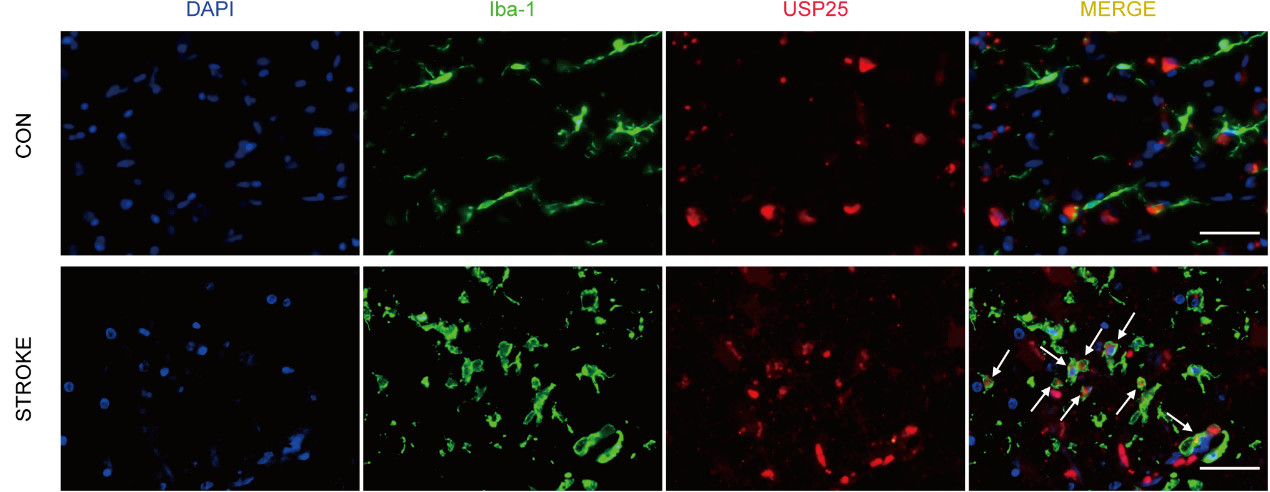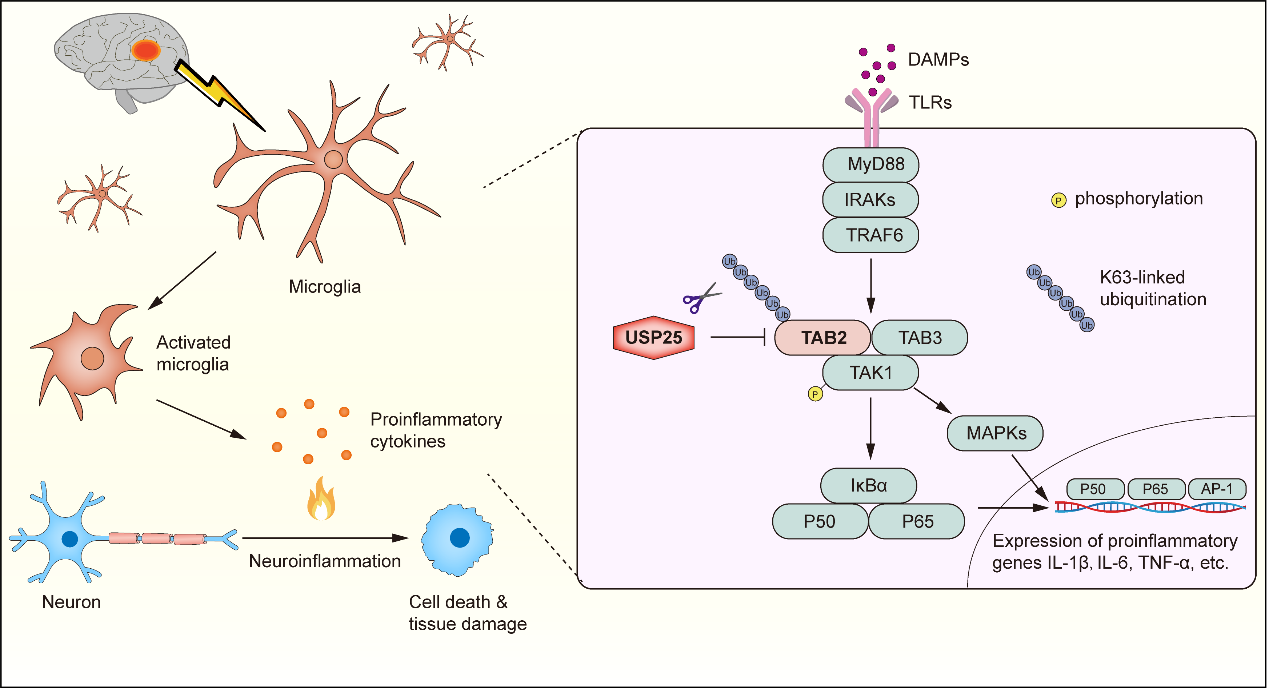As a part of the team of Academician Weihong Song, Fellow of the Canadian Academy of Health Sciences (CAHS) and director of Oujiang Laboratory, Dr. Xu Wang’s research group recently published an article entitled USP25 inhibits neuroinflammatory responses after cerebral ischemic stroke by deubiquitinating TAB2 in the internationally renowned journal Advanced Science (IF=15.1). The article found that USP25, a deubiquitinating enzyme, ameliorated MCAO-induced brain injury by inhibiting microglia-mediated neuroinflammation. This study also found that USP25 inhibited inflammatory signal transduction by removing K63-specific polyubiquitin chains from TAB2. This study clarified the role and molecular mechanism of USP25 in alleviating MCAO-induced brain injury, and suggested that USP25 may serve as a new therapeutic target for the treatment of ischemic stroke.

Ischemic stroke, which accounts for over 80% of total stroke cases, is a life-threatening cerebrovascular disease associated with high morbidity, disability, and mortality. This study found that deficiency of the deubiquitinating enzyme USP25 significantly aggravated ischemic stroke injury in mice. Mechanistically, USP25 has no impact on neuronal death under hypoxic conditions, while it reduces ischemic stroke-induced neuronal loss and neurological deficits by inhibiting microglia-mediated neuroinflammation.

USP25 deficiency enhances microglial activation in MCAO mice.
This study found that USP25 expression was markedly upregulated in microglia in the ischemic penumbra of patients suffering ischemic stroke and mice after MCAO, indicating that the upregulated USP25 may inhibit neuroinflammation after ischemic stroke in a negative feedback way.

Upregulation of microglial USP25 in the ischemic penumbra
of patients with ischemic stroke
Mechanistically, this study found that USP25 inhibited the activation of NF-kB and MAPK signaling pathways by removing K63-specific polyubiquitin chains from TAB2. Knockdown or overexpression of TAB2 alleviated or aggravated ischemic stroke injury respectively, and both treatment eliminated the influence of USP25 deficiency on disease outcome. This study not only found a new therapeutic target for ischemic stroke, but also provided a new regulatory mechanism for inflammatory signal transduction.

Schematic illustration of the study
Zhongding Li, a research assistant of Dr. Xu Wang’s research group in Oujiang Laboratory, and Dr. Baohua Liu, a doctor of the Department of Neurological Rehabilitation in The Second Affiliated Hospital of Wenzhou Medical University, are the first authors of this article. Academician Weihong Song and Dr. Xu Wang are the corresponding authors. This research was supported by the National Natural Science Foundation of China and the start-up funding of Oujiang Laboratory. Oujiang Laboratory is the primary affiliation of this article.
-
Wang Xu--Clinical and Translational Medicine: Deubiquitination of RIPK2 by OTUB2 augments NOD2 signalling and protective effects in intestinal inflammation.
SOURCE:/en/Research/249.html -
Song Weihong--Cell Death & Disease:NAD+-boosting agent nicotinamide mononucleotide potently improves mitochondria stress response in Alzheimer's disease via ATF4-dependent mitochondrial UPR.
SOURCE:/en/Research/248.html -
Chen YU -- Nano Today: NIR-II light-activated and Cu nanocatalyst-enabled bioorthogonal reaction in living systems for efficient tumor therapy.
SOURCE:/en/Research/247.html -
Su Jianzhong--Clinical And Translational Medicine: Distinct discrepancy in breast cancer organoids recapitulation among molecular subtypes revealed by single-cell transcriptomes analysis
SOURCE:/en/Research/246.html
CONTACT
Address:No. 999 Jinshi Road, Yongzhong Street, Longwan District, Wenzhou City, Zhejiang Province, China
Email:zh@ojlab.ac.cn
ZipCode:325000



